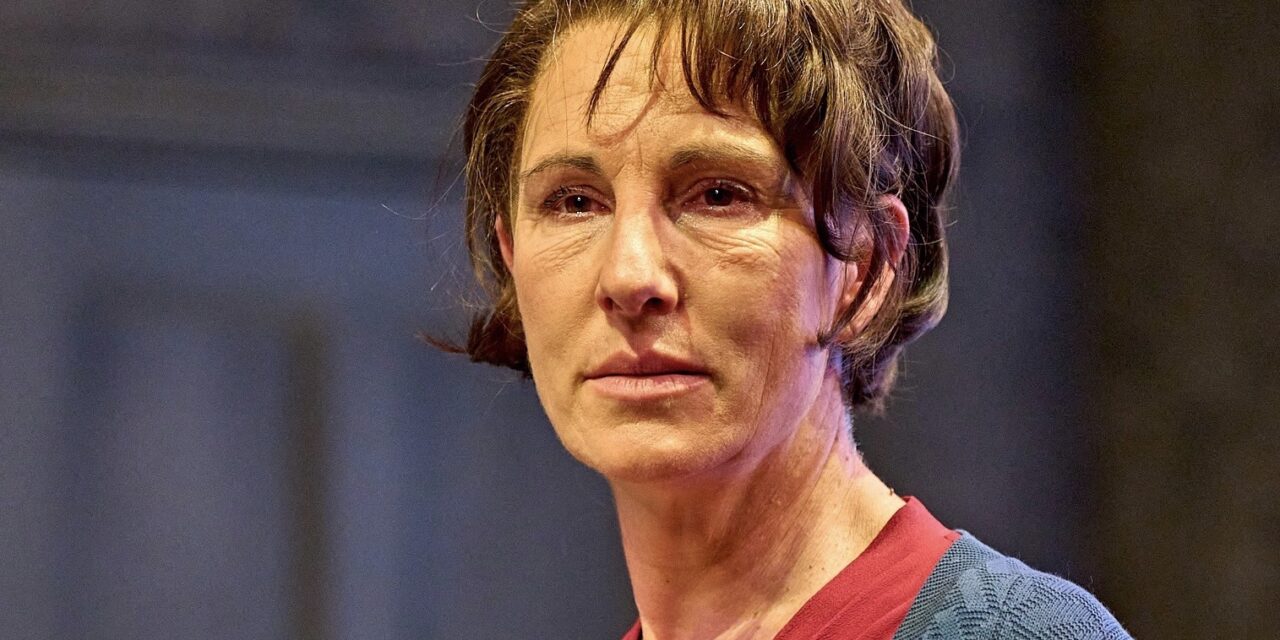
2 May – 1 June
When Terence Rattigan learned that former lover Kenny Morgan had committed suicide after a subsequent failed relationship with another man, he was moved to write about the unravelling of a sensitive, needy person looking for, but failing to find, reciprocated passionate love. In 1952, when The Deep Blue Sea was first put on at the Duchess Theatre in London, it would have been impossible for the story to have featured homosexual love. It would be another 15 years before the recommendations of the Wolfenden Report would result in the Sexual offences Act, which would decriminalise homosexual behaviour between consenting adults.
It has been suggested that Rattigan really meant his play to be a triangle of homosexual relations, but had instead placed the fulcrum of the story onto Hester Collyer, the estranged wife of Sir William Collyer, a respected high court judge. Now ‘living in sin’, as it used to be referred to, with the younger but emotionally limited former WWII flying ace, Freddie Page, Hester finds yet again that the potential magic of a romantic and physical relationship has dissipated into mere functionality and role playing, leaving her, in 1950’s England, a soon-to-be divorced woman with potential footholds very hard to find – where ending it all could be an alluring option.
Made famous by Peggy Ashcroft in the original casting, the role of Hester is now recognised as being one of British theatre’s greatest female roles. Tamsin Greig’s visceral portrayal of a woman looking into an emotional abyss is exceptional. Realising that her needs are not going to be met by her new man, she utterly convinces as someone who has run out of road. She has her audience riveted. Rattigan’s Hester is an intelligent, passionate individual, a biting and sarcastic self-critic, if slave to passion. Greig teases out the switches from unrequited romantic to caustic commentator throughout a captivating performance made all the more intimate for being in the confined space of the Ustinov.
The action takes place in a dilapidated flat in Ladbroke Grove, London, known in the early 1950’s as a ‘poorer district’. The song Stormy Weather appropriately punctuates the evening’s intervals. Designer Peter McKintosh has perfectly captured down-at-heel rented rooms, complete with shilling-in-the-slot gas meter, gas fire, peeling wallpaper and faded carpets, lit by lace-curtained windows.
Peopling this netherworld are the fellow residents of the rooming house and the loose-tongued caretaker, Mrs Elton, played with nosy busybody aplomb by Felicity Montagu. On other floors are the gauche young couple Philip and Ann Welch (Preston Nyman and Lisa Ambalavanar) – Philip getting the boot-in-mouth award for cringeworthy tactlessness that Hester will wonderfully smear away with tired sarcasm.
The enigmatic Mr Miller is played with slightly sinister presence by Finbar Lynch, but the reveal of his descent from professional career to boarding house dweller becomes pivotal to the plot. Lynch pulls this off with the driest of deliveries until an extraordinary outburst in which Miller changes the course of events. Nicholas Farrell looks very much at home as Sir William Collyer, Hester’s cast-off husband, giving him, by turns, fits of frustration but ultimately hopeless poignancy in his realisation that he has left it too late to bridge the divide between himself and a wife who has ‘become someone else’.
Oliver Chris’s Freddy Page is made to look doubly wooden by the seething sensitivity of his partner. Struggling in a dissolving world of his own and now on the booze after a successful flying career, his insecurities have obliterated any chance of his feeding Hester’s desires. This they both know.
At the play’s heart lies the Holy Grail idea that we all need to find something within ourselves to nurture if we are to survive life’s vicissitudes – that moving on can be endured if we harbour some basic self-respect. Greig’s portrayal of Hester Collyer’s titanic struggle to find that most precious state of mind is a theatrical moment to relish. A Greek girl’s name, Hester means ‘star’. We witnessed one tonight.
★★★★★ Simon Bishop, 16 May 2024
Photo credit: Manuel Harlan


